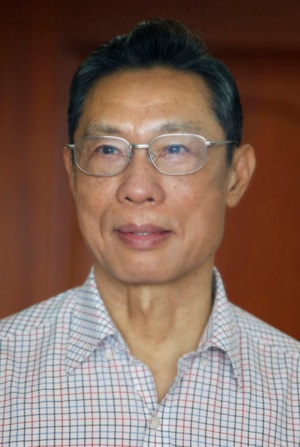



In 1955, he studied in the medical school of Beijing University. During 1979 to 1981, he engaged in advanced studies at the University of Edinburgh and the University of London. From 1982, he has served as the director of Guangzhou Respiratory Diseases Institute, Dean of the First Affiliated Hospital of Guangzhou Medical College, Dean of Guangzhou Medical College, President of Chinese Medical Association, Director of National key subject of respiratory diseases, National clinical research center and National Key Laboratory. He was awarded the honorary Doctor degree of Medicine of the University of Edinburgh. He is also a WHO Committee on asthma prevention guidelines and Executive member of the Alliance for global chronic respiratory diseases (GARD). He was elected as the member of the Chinese people's Political Consultative Conference for three consecutive sessions, as the deputy to the National People's Congress for two sessions. He proposed the concept of latent asthma and Simple asthma treatment for the first time. He presided over the formulation of atypical pneumonia, H5N1, H1N1 and other acute infectious diseases in China that achieved the highest survival rate in the prevention and control of SARS in the world, also achieved successful rescue of severe infectious diseases in the later H7N9, MERS, H5N6 and the others. It has been confirmed for the first time that the replacement of bio fuels can reduce the morbidity rate of chronic obstructive pulmonary diseases; Sulfur-containing hydrogen compounds can prevent the acute attack of the disease effectively, and it was included in the healing drug of the global guidelines for the prevention and control of diseases. In his published academic paper, he awarded the best paper in the “Lancet” and the “International Environmental Epidemiology Association (ISEE)” each for one paper respectively. As the chief editor, he published the internal medicine (Seventh Edition), Respiratory pathology (Second Edition) and the others a total of 12 monographs. He awarded the second prize of national scientific and technological progress in a total of 4 items, National Advanced Worker, National Bethune Medal, National model workers and other titles. Additionally, he was elected an academician of Chinese Academy of Engineering in 1996.


用户登录
还没有账号?
立即注册